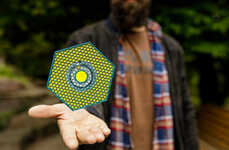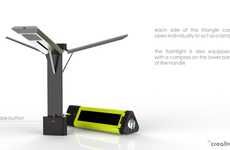The Dirt-Charging Phone Will Improve Developing Nations' Health Care
Leslie Chen — May 12, 2011 — Eco
A team from Harvard is developing a dirt-charging phone system that will allow greater access to cell phones. With most people glued to their cellular screens almost 24/7, it seems unfathomable that anyone would not have one; but developing nations face many problems that are unfamiliar to North Americans, including not having a mobile device. Although this may seem like an insignificant issue compared to high death rates or low birth rates, the use of a cell phone is actually linked to crucial things like access to health care.
For developing nations, the use of “phones allow people living in remote areas to contact health care practitioners, or to use health care apps.” Due to the poor electrical system in these countries, it is difficult to keep these phones alive and charged. Led by Dr. Aviva Presser Aiden, the team from Harvard is developing a dirt-charging phone system “that gets its power from microbes in the soil.”
The dirt-charging phone system will be highly beneficial in providing greater health care in these developing nations.
For developing nations, the use of “phones allow people living in remote areas to contact health care practitioners, or to use health care apps.” Due to the poor electrical system in these countries, it is difficult to keep these phones alive and charged. Led by Dr. Aviva Presser Aiden, the team from Harvard is developing a dirt-charging phone system “that gets its power from microbes in the soil.”
The dirt-charging phone system will be highly beneficial in providing greater health care in these developing nations.
Trend Themes
1. Dirt-charging Phones - Opportunity to develop innovative phone systems that derive power from soil microbes, improving access to cell phones in developing nations.
2. Mobile Health Care - Potential for creating health care apps and mobile services that connect people in remote areas to health care practitioners.
3. Sustainable Energy Solutions - Opportunity to explore alternative energy sources, such as soil microbes, for powering electronic devices like phones.
Industry Implications
1. Telecommunications - Telecommunication companies can develop dirt-charging phone systems to expand their customer base in developing nations.
2. Healthcare - Healthcare providers can leverage mobile technology to improve access to healthcare services in remote areas through health care apps and telemedicine.
3. Renewable Energy - Renewable energy firms can explore the use of soil microbes to develop innovative energy solutions for electronic devices in areas with limited access to electricity.
4
Score
Popularity
Activity
Freshness






















